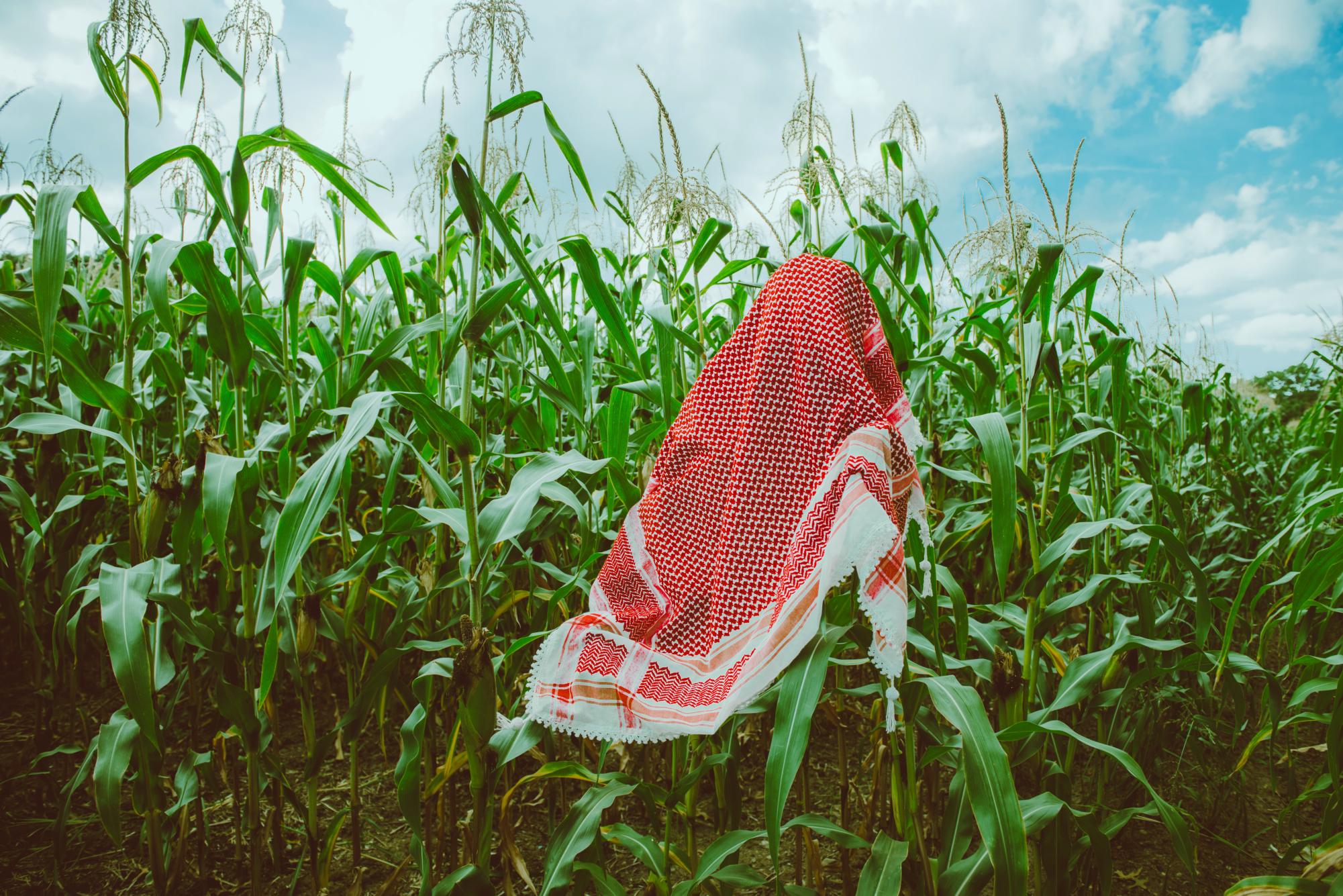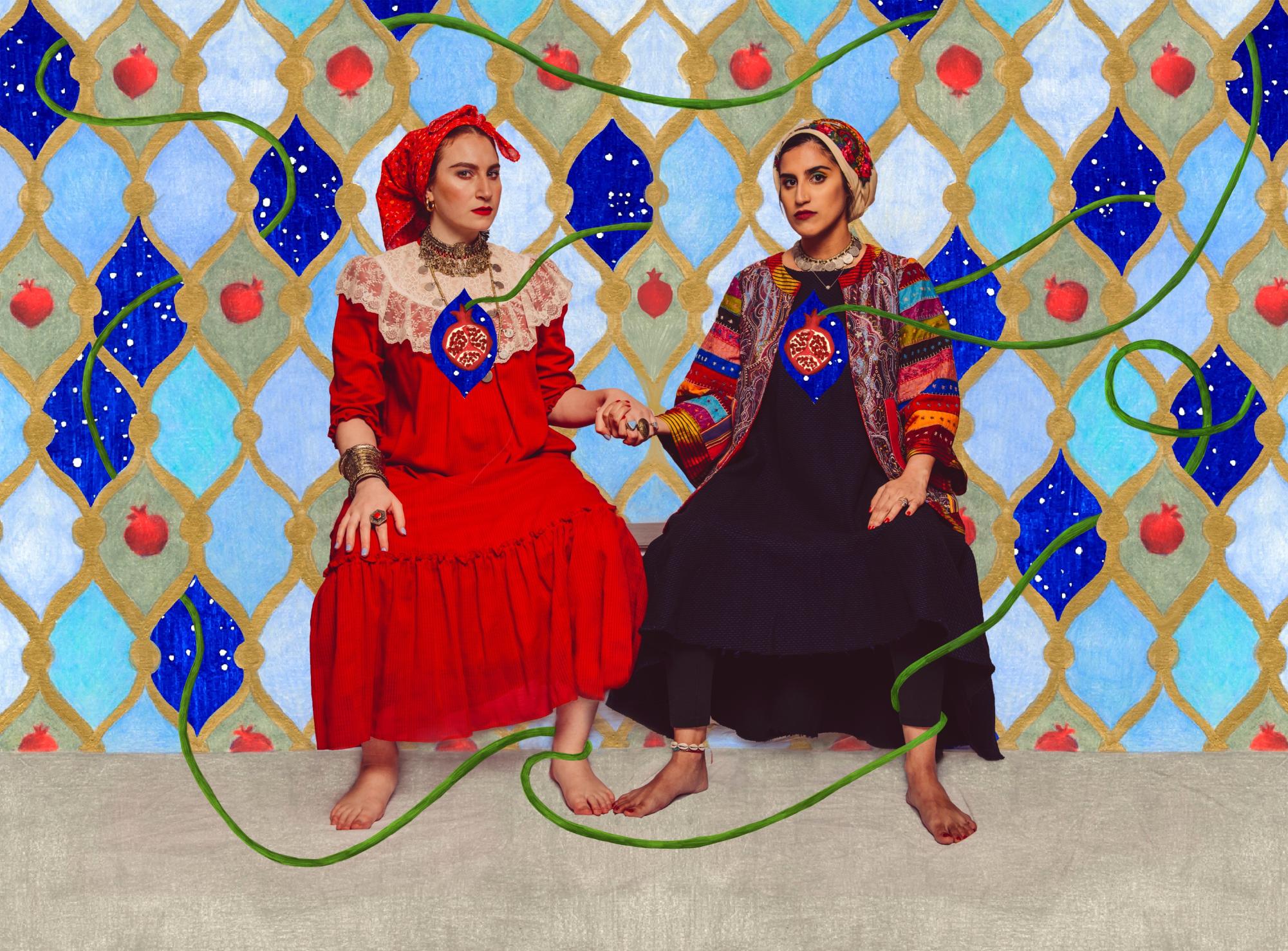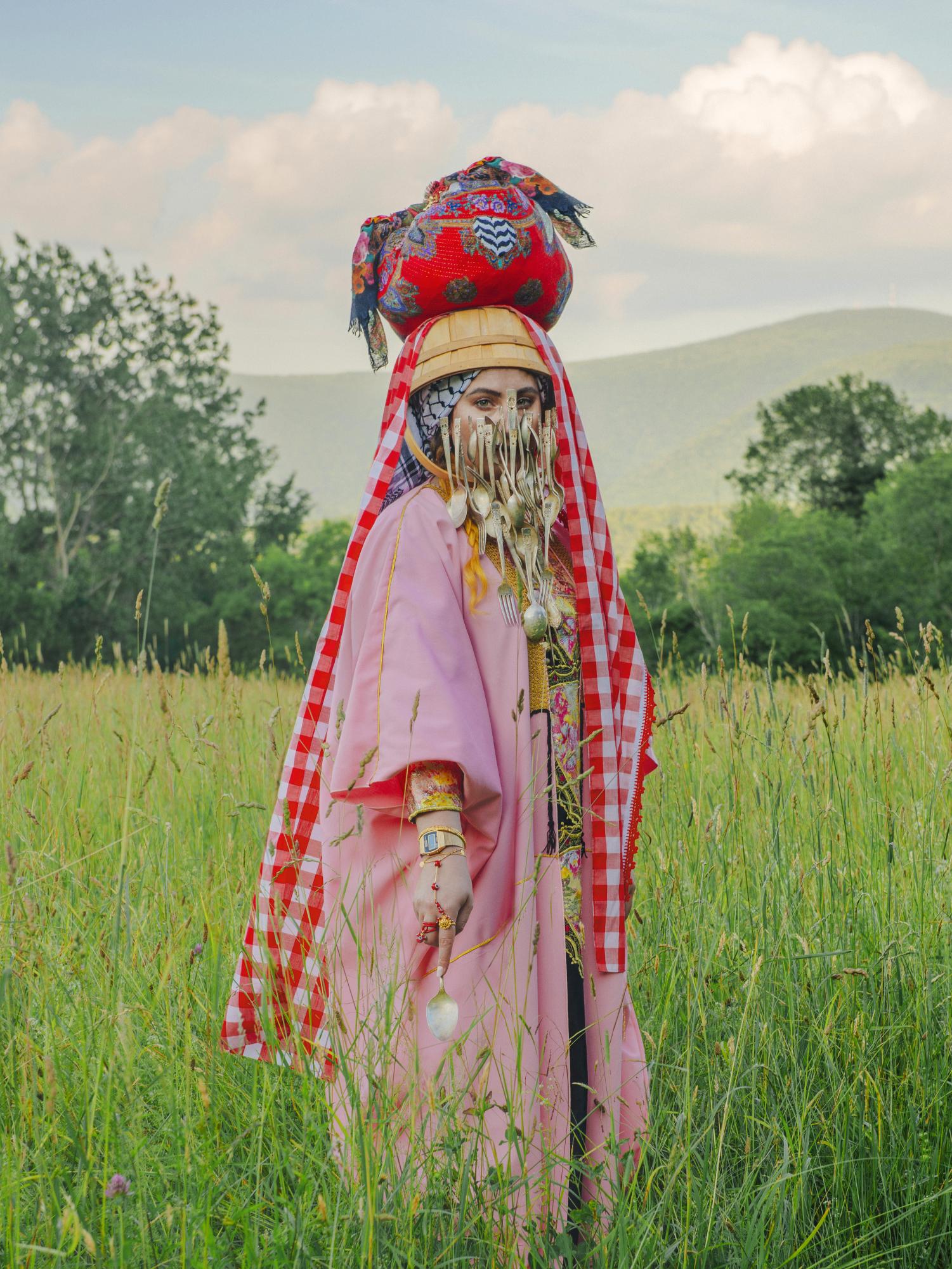In light of Northeastern’s use of police force to break up a pro-Palestinian encampment in April, Arab-Muslim artist Feda Eid withdrew her upcoming solo show at the College of Arts, Media and Design’s NUGallery 360 and NortheasternCrossing. The display was set to go up in June.
Eid announced that she would withdraw her exhibit, titled “Diasporic Threads,” in a May 27 Instagram post, saying the move was in solidarity with Huskies for a Free Palestine and Students for Justice in Palestine at the Northeastern University School of Law. Huskies for a Free Palestine, or HFP, is an unofficial student group that organized the encampment on Centennial Common in protest of what they say is genocide in Gaza and Northeastern’s refusal to divest from weapons manufacturers.
“I spoke directly with students from the Huskies for Palestine and they told me many ways in which they experienced harm from arrests to charges and various forms of suppression, censorship, and double standards imposed on them but not pro-Israel agitators,” Eid wrote in the post, which urged people to contact the university to ask it to drop disciplinary charges against students who were arrested at the encampment.
Northeastern’s encampment ended on April 27 with the arrest of 98 people on charges including trespassing, unlawful assembly and resisting arrest. The school said in a statement after the arrests that the use of “virulent antisemitic slurs,” namely “Kill the Jews,” which video showed was said by a pro-Israel counter-protester, “crossed the line.”
“I canceled the show after the school deployed military armed police, both local and state, on these students and lied about details as to why they did so including framing the encampments as antisemitic because of counter-protesters yelling such statements,” Eid wrote in the post.
An Instagram post by HFP outlines the charges the Office of Student Conduct and Conflict Resolution, or OSCCR, is bringing against 30 student demonstrators for allegedly participating in disorderly conduct, violating school policies, failing to comply, endangering behavior and disruptive gatherings.
“The hearings conducted by [OSCCR] are scheduled on an arbitrary timeline with no legal representation allowed,” the post reads. “If found guilty, students are threatened with expulsion upon further charges, effectively holding their education hostage for their silence on genocide.” The group has continued calls for Northeastern to divest from companies with ties to Israel and to drop charges against its students.
In a statement to The News, university Vice President for Communications Renata Nyul said Gallery 360 is “excited to extend the annual exhibit of our Children’s Center’s little artists.”
“We wish Feda Eid the best in finding another venue to showcase her work,” Nyul said.
Eid is the daughter of Lebanese parents who fled the country’s civil war in 1982. She is a multidisciplinary artist currently based in Boston, whose work centers on the post-9/11 Muslim American experience and how the diaspora exists between genocide and colonialism.
“I [withdrew] publicly to make sure that the school understood that as an artist, as a cultural worker, you can’t have our work beautify your walls and then turn around and brutalize our communities or cause harm to them,” Eid said in an interview with The News. “I do have people that are in my community that respect me, that also are artists and cultural workers, and I wanted them to see that collectively, we can stand together and we don’t need institutions. We can do our own thing and we can be here for each other.”
Eid’s Instagram post urged fellow artists to “boycott institutions in any way they can.”
“The institutions have long created the space where we have to tiptoe around issues that affect marginalized people,” Eid said. “I’ve always had a strong personality and commitment to exposing injustice, and my art is rooted in that — when people see each other stand up for things, it makes it easier.”

Eid expressed admiration for the curators of Gallery 360, namely Juliana Barton, adding in her Instagram post that they were “supportive and caring throughout this process.”
“I was honored that [Barton] found something beautiful in my work and wanted to share it,” Eid told The News, adding that it would have been the first time that her work was shown in a solo exhibition at an institution like Northeastern and in its entirety from 2016 to the present.
Despite the honor of being recognized, Eid had hesitations about working with the university.
“I was a little bit unsure of the way I wanted to collaborate with the school, given that they are an institution and they do have ties to the military-industrial complex,” Eid said. “And there was previous repression of Palestine solidarity work in the school in 2014.”
When the encampments went up at Northeastern, Eid was waiting to see how the administration would respond, she said.
“If they chose to bring harm to the students, I knew that I was going to withdraw,” Eid said. “I was at the Emerson encampment, I saw the police brutalize the students — they were bleeding, being shoved, they had riot police with batons called on them.”
Eid said that during her time at the Emerson encampment, she witnessed communal activities like teach-ins and religious ceremonies, including Seder. Northeastern demonstrators also held a Seder on one of the nights of the encampment, along with Muslim prayers.
“It was very much a reflection of the world we want to live in, where people are sharing, building, learning, and organizing with each other for a better world — I was very much inspired by them,” Eid said of her time at Emerson’s encampment.
Eid said that she wanted to support students in HFP and believed in what they were doing, calling the disciplinary charges some students are facing “institutional violence.”
“I have also been arrested, so I know what these students are going through — it is traumatizing,” Eid, who has been part of pro-Palestine organizing the past several months herself, said.
“I just wish for the school to have some shame and to change the direction that they’ve been going in, and to the student demands — they’re clear, they’re educated,” Eid said. “They’re backed by facts that the school’s tied to different forms of oppression and military murder.”
Eid says she wants people to witness what is happening in Gaza.
“This is a moment in history that will be documented — where do you stand, and how are you using your privilege, how are you using your gifts to uplift the oppressed in this moment?” Eid said.
Eid highlighted the ongoing violence against people of color around the world.
“We have several genocides happening at once — Sudan, Congo, Haiti — they’re all the people that we are there, and they’re being murdered,” Eid said. “The generations of people that are maimed, that have been losing people in their families and continually displaced — this is going to have an effect on all of us.”
Eid added that those in privileged positions especially have a responsibility to speak up and called on people of all skill sets to use their talents and voices to stand up for others.
“Don’t be silent, use your privilege, speak up and be willing to lose some of that privilege,” Eid said. “I’m losing $5,000 of income because I won’t be doing this — it’s scary but compared to what they’re going through, we have to hurt a little, we have to be uncomfortable.”
Editor’s Note: This story was updated at 7 p.m. June 8 to reflect that Eid is currently based out of Boston, not Rhode Island.











